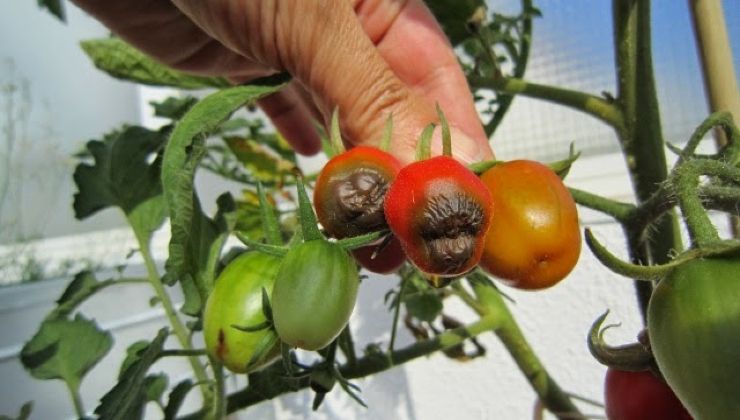Why do tomatoes turn black at the tips? It’s not lack of water: the reason
Have you ever wondered why tomatoes turn black at the tips? Revealed the mystery. We just anticipate it’s not because of lack of water. Here is the real reason.
You too may have witnessed the deterioration in the quality of a tomato . You will have seen that these vegetables often turn black at the end . Why does this phenomenon occur? This is not the fault of lack of or poor watering.
How to best care for tomato plants
It’s impossible not to love tomatoes . Its strong yet mild flavor is loved by gourmet palates around the world. Italy is one of the nations that most produces, imports and exports these tasty fruits abroad, which are mainly consumed in summer.

If you have the possibility of growing a tomato plant in a pot or in the garden , we advise you to do so: if you follow a few tips, you will be able to take advantage of this unsold and tasty product from the vegetable garden throughout the summer season.
But how do you take care of a tomato plant? There is some information you need to know. To grow it well and have lots of fruit, you must:
- water the plant every other day;
- bury it in moist, drained soil so that the roots take root well;
- display it in a very bright place;
- prune it frequently by cutting off the buds that appear under the leaves and stem;
- feed the soil with natural fertilizers if you notice that your plant is having trouble growing.
You realize that your tomato plant is not growing in the right direction, not only if it produces few fruits but especially if the fruits start to turn the tips black . Why does this phenomenon occur? No, it doesn’t depend on lack of water.
Why do tomatoes turn black at the tips
You will also have noticed that not all tomatoes are the same. Of course, there are different varieties that define the shape, color and flavor of the fruit.
However, there is surely something that all tomatoes have in common, regardless of the variety: the black color that often appears on its tip. What is this curious phenomenon? Why is this happening? We answer these questions.

The main reason why tomatoes turn black at the tips is: a deficiency of calcium which is a rare nutrient in the soil. The absence or too little quantity of this nutrient necessary for fruiting manifests itself by necrosis on the lower part of the fruit (the tip, to be clear) and by internal rot which makes the tomato clearly inedible.
This being established, we can therefore exclude that the black color at the tip does not depend on the lack of water . At least not completely. We also need to establish specifications in this regard.
To grow healthy and strong, plants must absorb the calcium that is present in well-fertilized soil . All the nutrients that the plant acquires through the roots which in turn absorb them from the soil substrate in which, among the different nutrients, calcium is also found.
What happens if you water a tomato plant too much or too little ? There are two consequences:
- if you overwater the plant, its roots drown and are unable to absorb the most important nutrients like calcium;
- If you water the plant too little, the roots will not grow and will not be able to absorb nutrients and therefore also calcium.
This is why it is more correct to say that tomatoes turn black at the tips because they are unable to absorb calcium as they should , but also because of poor irrigation .
Is it possible to fix this? The answer is yes. In what way? By integrating calcium into the soil . Integration can take place either by fertilizing the soil with supplements containing this essential plant nutrient or by using natural ingredients.
Milk for example, which is a drink rich in calcium , can help the plant absorb the right amount of this nutrient . Pour 250 ml of milk into a liter of water and water the soil and leaves of the tomato plant.
You can also use powdered milk if you prefer. In this case, you will need to spread a generous quantity on the substrate then proceed to water the plant.
According to certain studies, however, there are also other causes responsible for so-called apical necrosis , namely too sudden growth of the plant having received excessive nitrogen supplementation or poor water drainage.
The solution to solving all these problems is therefore to nourish the soil with natural calcium supplements but above all to pay attention to irrigation: the so-called water stress must be avoided.
